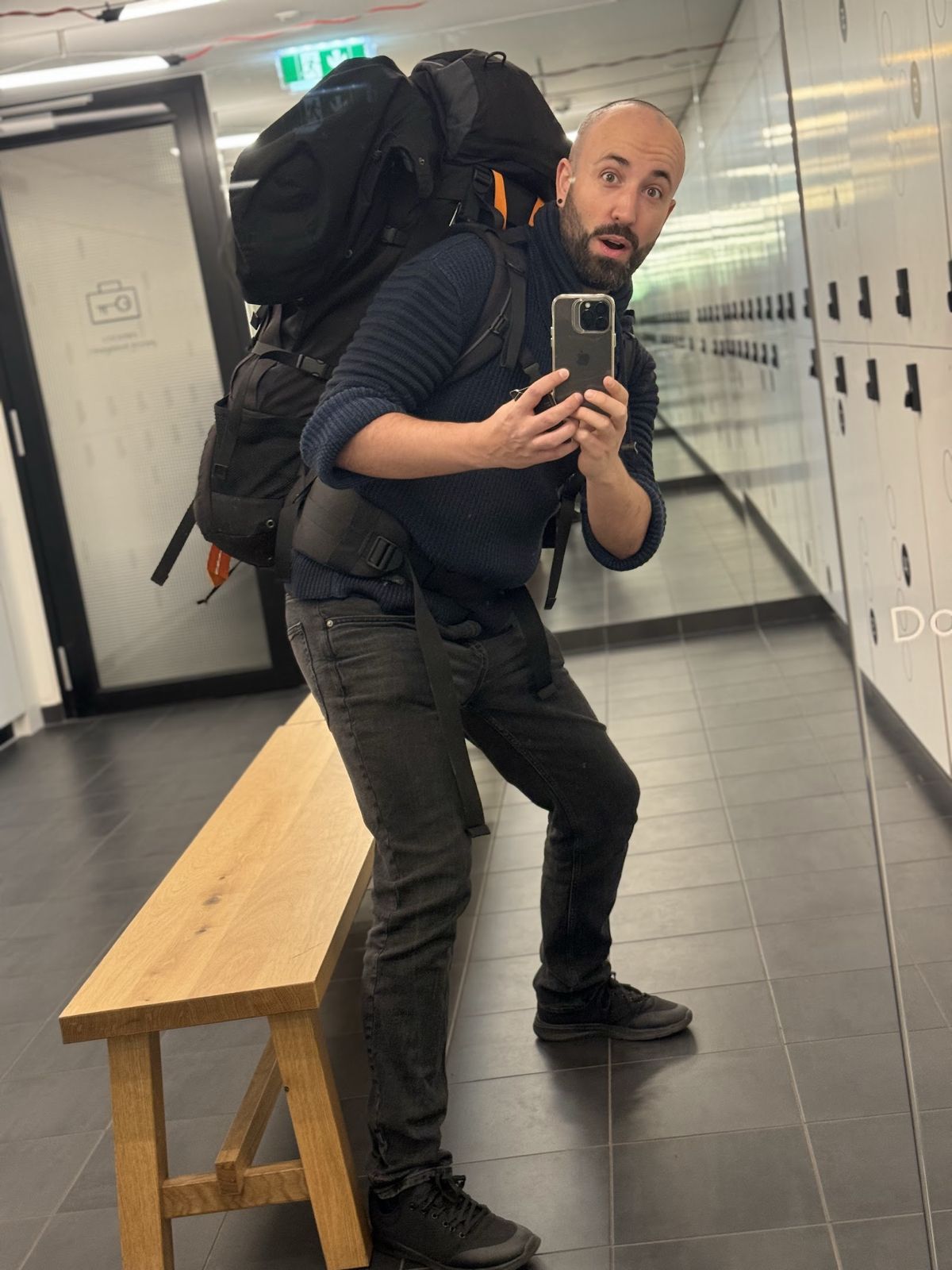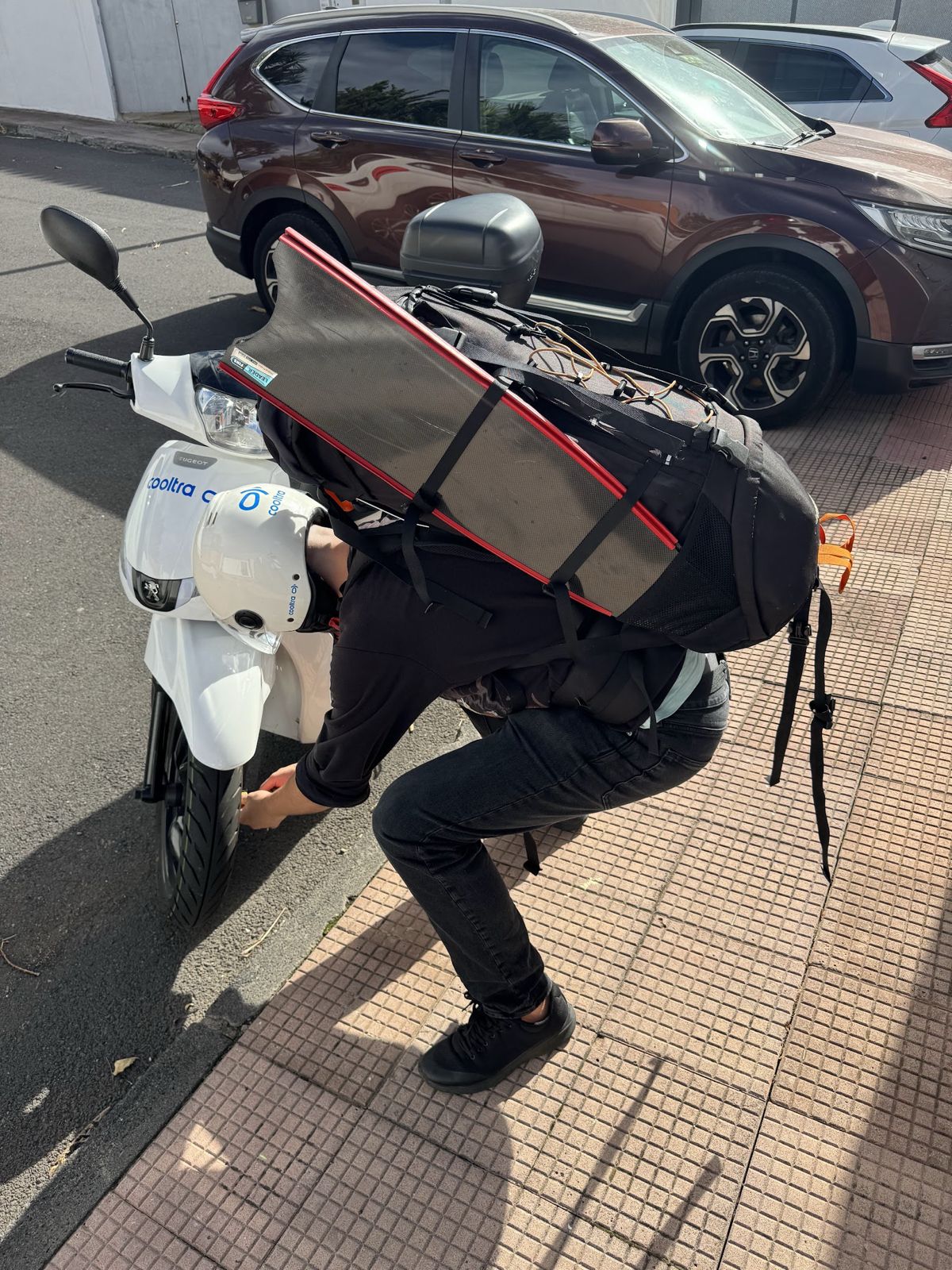How Digital‑Nomad Developer David Stays Productive: 3 Lessons From 4 Years on the Road
At 36, David has traded a fixed desk for a backpack and a rotating list of time zones. Yet his output hasn’t slipped. In this feature he reveals the simple, sometimes unconventional, systems that let him ship code, explore new cities, and still have energy left for personal growth.

You'll probably find David Saltwater working from a hostel in Lisbon, co-working in Barcelona, or recording content in a quiet Airbnb somewhere in Vienna. At 36, this lead developer from the Netherlands has been living the digital nomad life for four years now.
Currently holed up in Amsterdam with Prague on the horizon, David's got his sights set on sunnier horizons. His dream base? Somewhere warm like Barcelona or Tenerife (because honestly, who hasn't fantasized about swapping gray skies for actual sunshine?). The bigger picture includes a year-long world trip and, the part I love, maybe Japan when he's 80.
"What started as travel has shifted to something deeper. I now want to grow as a person," David explains.

But How Do You Actually Get Stuff Done When Your Office Changes Every Week?
This was the first question that came to mind. Because if I can barely stay on track with my ergonomic chair and carefully curated desk setup, how does anyone get anything done while living out of a suitcase?
Nomad life sounds dreamy and is very Instagrammable, until you realize you actually have work to do and spreadsheets to fill, bouncing between time zones and cafes with bad Wifi connections.
David realized this early on, and his first attempt to get control of his to-do list was to institute a classic buddy system.
"At first, I tried accountability with a best friend. I did nothing the first month. We even had a punishment system."
Ooof. We've all been there. The well-intentioned accountability partner who becomes your mutual enabler in creative procrastination.
When David stumbled upon Boss as a Service, (that's us – we are a virtual accountability service that pairs you with a ‘Boss’ who checks your progress daily), something finally clicked. "I had no clue how it would work, but it ended up working wonders. It forced me to think about my to-dos every day."
The secret sauce? Daily check-ins on personal goals, something even your closest friends don't actually do.
"Socially, no one asks about your personal goals every day. That consistency is what kept me on track."
We got Harshita, David’s Boss from Boss as a Service, to chip in!
“Working with David has been a learning experience for me as well. The way he manages his time while traveling, yet still makes room for social activities and personal growth, is truly commendable. When we started working together, it was primarily about building habits. While the specific goals have changed over time, the habit-building focus has remained constant, many of which we no longer even need to track anymore.”

The Wisdom Worth Stealing: How to Actually Get Stuff Done as a Digital Nomad
Turns out, constant travel teaches you a thing or two about staying on track. Here are David’s best, slightly unorthodox tips for getting better.
1. "Don't just try to get 1% better, think 10x."
We know (and love) James Clear’s philosophy of getting 1% better each day, especially for building sustainable habits. But there's transformative power in occasionally forcing yourself to think 10x bigger instead.
When you're constrained to incremental improvements, you naturally optimize within existing frameworks and processes, but when you ask "what would it take to be 10 times better, faster, or bigger?" you're compelled to abandon those frameworks entirely and reimagine the problem from scratch.
As Brian Chesky explains about Airbnb's internal philosophy: "There was a saying inside of Airbnb: add a zero. To imagine something an order of magnitude bigger. The exercise isn't necessarily to say you have to hit a 10x goal. It's more the exercise of what would it take to be 10X bigger or do something 10 times better? Because what you find is that when you push people, they will sometimes think about the problem differently. One of the best ways to get unstuck from a problem is to imagine a 10X scale or 10X better or 10X faster where you can't do the current process to do it. You have to think differently about the problem. And to think differently about the problem means you have to more deeply understand the problem. We might call this first principle thinking."
That said, a word of caution. It's hard to improve in everything all at once, so this 10x thinking works best when applied selectively to specific bottlenecks or breakthrough opportunities, not across every corner of your life at once. That way lies insanity and chaos.

2. "Experiment. Rethink priorities to match your current life."
Just as important is avoiding rigidity in your goal systems and being willing to experiment and adapt as your life circumstances change.
Take David's journey: when he first started working with BaaS, he had a specific set of business-focused goals, but when he began traveling, he realized the importance of connection.
He made a conscious decision to completely reshape his priorities around becoming more social. "You've got to really manage your time," he discovered. Things that weren’t a problem before suddenly needed a system. He began treating social life "like a project now, something you have to build."
Our takeaway? Don't be afraid to experiment with when and how you pursue your goals. If morning routines aren't working, try evening; if your current systems feel stale, it's probably because they are. Your goal system should serve your actual life, not the life you had six months ago, and there are no universal rules except what works for you right now.
3. "If you can't get your to-dos done, maybe you haven't tuned into the right values."
Most productivity advice assumes the problem is your system. Better apps, clearer priorities, stronger discipline. But often, the real issue is that your tasks aren't actually connected to what you deeply care about. When your to-do list is filled with obligations that don't align with your core values, every item becomes a battle against internal resistance, requiring constant willpower to push through work that feels meaningless or imposed by others' expectations.
But when you're clear on your values and your tasks genuinely serve those deeper purposes, productivity becomes almost effortless because you're not fighting yourself anymore, you're pulling toward something that matters. This might mean ruthlessly cutting tasks that serve values you don't actually hold, or reframing existing responsibilities to connect them to values you do care about.
Your productivity problems might not be about getting better at doing things you don't want to do, they might be about getting clearer on what you actually want your life to be about.

Final Thoughts
Whether you're working from a beach in Tenerife or a desk in your bedroom, the core challenge stays the same: figuring out what matters, and building systems that support that. David’s still tweaking, still experimenting, but that’s the point. Productivity isn't a finish line. It's just the process of choosing what to make progress on – and then showing up for it.